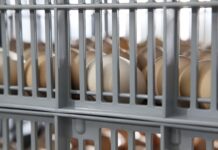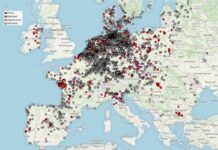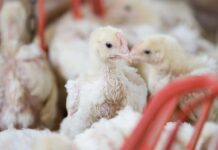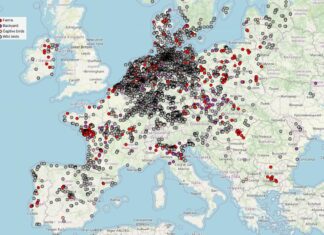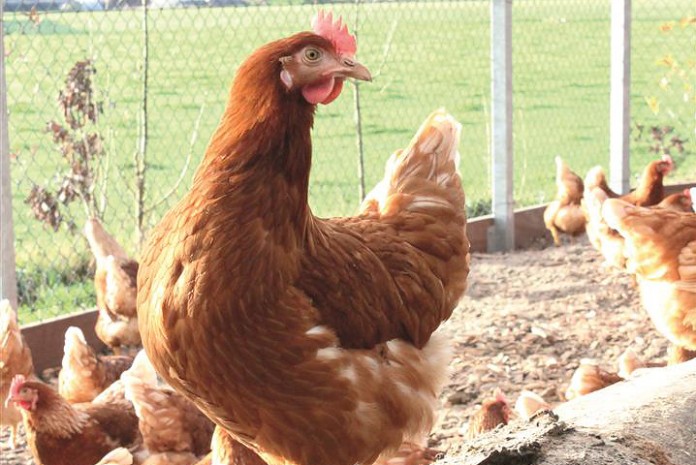
The egg production sector faced many challenges over the past 15 years, including disease outbreaks and discussions on bird welfare. After the avian influenza epidemic of 2003, a study entitled “Houden van Hennen” (“Keeping Hens”) was carried out by Wageningen University in 2004, to find a solution to these challenges. This study examined a sustainable solution for laying hen farming combining the needs of the chicken, the farmer and the consumer. Finding a balance between corporate social responsibility, animal and environmental friendly and economically viability for the farmer was a challenge. With input from farmers, but also consumers and policy makers, different designs were developed, including the Rondeel design.
The Rondeel design was adopted by Vencomatic Group (www.vencomaticgroup.com). Vencomatic Group established a sister company, Rondeel B.V. (www.rondeel.org), demonstrating their confidence in this livestock innovation and the will and ability to lead the way in new developments in egg laying hen husbandry. They hereby helped to preserve Netherlands’ leading position in the poultry and egg sector. The first Rondeel house was opened in Barneveld (NL) in 2010 and there are now four full-sized Rondeel systems and one mini-version in Amsterdam, taking the idea to city consumers.
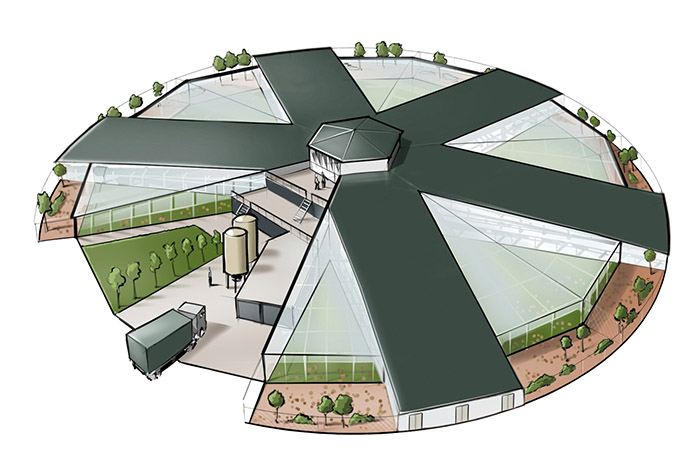
The Rondeel layout
Rondeel has a circular shape. At its heart there is an area for the egg-collecting system, a storage space for the eggs, feed and other essentials, and for climate control equipment. Radiating out from the heart of the house are five segments, each housing 6,000 hens. Thus, in one Rondeel house 30,000 hens are housed that produce eggs providing for an adequate income for one family. Each housing segment is used by one group of hens and is covered by a roof. It offers the birds opportunities for feeding, drinking, laying, and resting. Each segment has a foraging area and an outdoor area. In the forest area tree-trunks and bushes are placed, while the soil is supplemented with woodcuts or wood shavings. The foraging area is covered by a roof and enclosed by wire outer walls, providing the benefits of nature while protecting birds from predators. The outdoor area is furnished with artificial grass so that chickens can forage regardless of weather conditions, and lowering the risk for taking up infectious worms. The separate day and night-time areas allow the birds to perform all their natural behaviour in a safe and secure place. The first floor of the Rondeel house accommodates a visitors’ centre. Next to an area where visitors can see how the system works, two meeting rooms are provided, that can be booked. From the visitors’ area, visitors can proceed through a glass tunnel to experience the Rondeel house further. From here, visitors are eye-in-eye with the laying hens which are housed in one of the living areas.
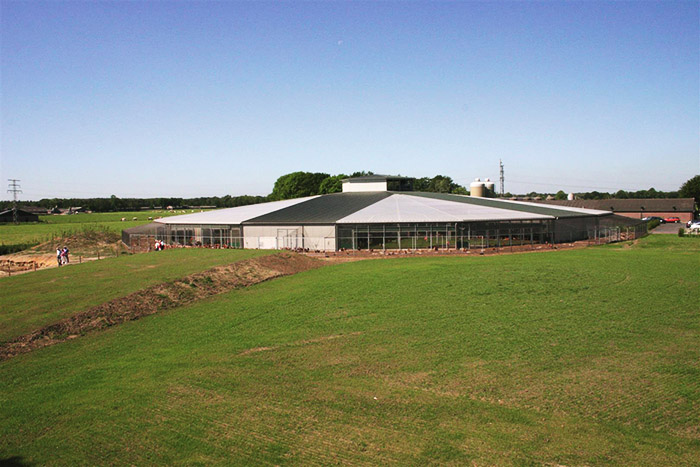
Packaging
Rondeel eggs are originally sold in circular shaped packs of seven – one egg per day for a week. For its packaging it uses organic material like potato starch which makes it bio-based and bio-degradable. It is hereby distinguishable from conventional packaging. Rondeel eggs were the first to receive a sustainability mark on their eggs by the Environment certification mark, in Dutch: Milieukeur (www.milieukeur.nl).
Recognition by NGOs
The Rondeel egg production systemhas been recognised by a number of organisations for its high environmental and bird welfare standard. It has received a three-star rating of the “Beter Leven” mark (“better living”), which is the highest rating from the Dutch animal Welfare organisation, normally provided only to organic eggs. Based on the Welfare Quality® protocol, the bird welfare was evaluated very positive by Livestock Research scientists from Wageningen University. This study also included non-beak trimmed hens, and demonstrated that it is well possible to house birds with intact beaks (http://www.rondeel.org/public/files/WUR%20eerste%20legronde%20beoordeling.pdf).The “Natuur en Milieu” organization stated Rondeel eggs were “The best eggs, sustainable and animal friendly.” Rondeel also received international recognition by organisations such as Compassion in World Farming, Freedom Food, RSPCA and Tierschutz.
Interested in Rondeel? Visit www.rondeel.org for more information.


